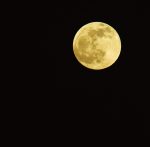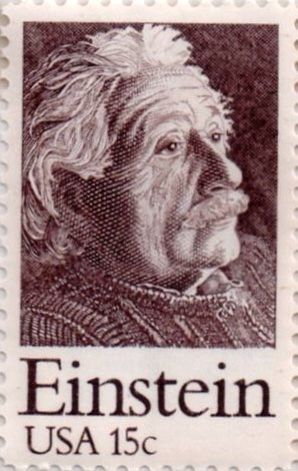(If you have homeschool teens who want to develop independent academic skills for college or career, take a look at the many citizen-science projects we recommend. Some can be done indoors and some outdoors; some are scientific and some are historical; all of them are real projects that contribute to the growth of knowledge. The post below is my monthly report on the ones I myself participate in. Take a look at the whole list and find one or two that appeal to you and your students and get started today!)
➤ Did you know NASA has a whole host of citizen-science projects that you and your students can join? It’s true! Take a look at the NASA Citizen Science page for details and get started today. 🚀
![[Full Moon]](https://riverhouses.org/wp-content/uploads/2018/11/full-moon-square-300x294.jpeg) THERE’S a full moon tonight, so that means it’s time for our monthly report from the Lunar Society of the River Houses.
THERE’S a full moon tonight, so that means it’s time for our monthly report from the Lunar Society of the River Houses.
The Lunar Society is a big and wonderful long-term plan to encourage homeschoolers to participate in real citizen-science projects and to share their results with other homeschool families.
Here’s our list of just some of the great projects that homeschool students (and their parents!) can join and contribute to, from history to geography to physics to natural history to mathematics to meteorology to literature to galactic exploration:
Browse through that project list and find one or two that would be a good fit for your family and a good match for your interests. Before you know it, your students will be learning a host of valuable skills and your little home academy will be well on its way to becoming an international investigative powerhouse. 🔬 🔭 🖥 🦋 🔍 ⚗️ ⛏ 📖 🦆 🌲 😊
Over time, it’s my hope that these monthly reports will evolve into something like a forum where homeschoolers can share their citizen-science accomplishments.
As a simple example, here’s my own personal report for the past lunar month on the two types of projects that I participate in: eBird monitoring of bird populations, and distributed computing projects using the free Berkeley network-computing application. You and your students can participate right now in these projects, and in many others too.
On the eBird website (eBird.org), sponsored by Cornell University, I have been documenting the birds of a local college campus that I frequently visit. So far I’ve contributed a total of 1826 checklists (observation reports) for this locality — it’s a site that has never been documented before. As more checklists are added, and as eBird combines them and charts them automatically, you can get a real sense of seasonal distribution and migration patterns at this location:
![[eBird Chart]](https://riverhouses.org/wp-content/uploads/2022/06/ebird-chart-2022-06-13.png)
And here’s a recent sample checklist so you can see what they look like:
You and your students can start keeping a similar eBird list for a location near you — your backyard, or a local park or other natural area. (Helping to track a public park or eBird “hotspot” will let you generate more useful results.) You can even add photos and sound recordings to your reports if you wish. Just pay a visit to the eBird website and start exploring.
❡ Share your eBird checklists: We’re testing out the eBird sharing feature that lets individual birders share their observations with their friends. We’ve created a special River Houses eBird profile that works like a club account: when you’ve completed a checklist of your own, click the “Share” button on that checklist and enter the eBird username riverhouses. That will share your checklist with the River Houses club account, and you in turn will be able to see the checklists that others have shared. (I post one of mine each month at the full moon.) Give this new feature a try and see how it works! 🐦
The distributed computing projects that I contribute to are scientific studies that run on the Berkeley Open Infrastructure platform. This free online application uses idle time on your own computer to perform scientific calculations, and so whenever my laptop is plugged in, I’m automatically contributing computer time to four projects: (1) the Einstein@Home project, which studies neutron stars; (2) the MilkyWay@Home project, which studies the history and structure of our galaxy; (3) the Asteroids@Home project, which calculates the shapes and orbits of poorly-known asteroids; and (4) PrimeGrid, which searches for very large prime numbers that have never been discovered. (Yes, those are projects you and your students can contribute to, and no, you don’t have to be computer experts to join in the fun.)
❡ We found a prime! The River Houses has discovered a previously unknown prime number through our participation in the PrimeGrid project. So cool! You can see the technical details listed here in the international mega-primes database. If you have an enthusiastic high school math or computer science student in your homeschool, PrimeGrid is a great project to join. 🖥️
I’ve created River Houses team pages for each of the above projects (Einstein@Home team, MilkyWay@Home team, Asteroids@Home team, PrimeGrid team). Once your computer is signed up to participate you can join one of these teams and you can also print “certificates of computation” that show how much data you’ve individually processed and how much your team has processed — they’re just the thing for your homeschool bulletin board. (And while it’s running, Einstein@Home has a cool screensaver that shows you in real time what your computer is analyzing.) 📡
![[Distributed Computing Certificate]](https://riverhouses.org/wp-content/uploads/2025/04/certificate-combined-2025-04-12-1024x744.png)
And here’s another level of skill development for your high school (or even advanced middle school) students: once you’ve processed a few weeks or months of data, you can start graphing your contributions. I’ve set up a simple chart of River Houses team results using an online spreadsheet, and this is what it looks like — if you join one of these projects, your numbers will be included in these totals:
![[Distributed Computing Teams]](https://riverhouses.org/wp-content/uploads/2025/04/dc-teams-2025-04-12-1024x595.png)
That’s just a simple graphing exercise — it’s something that can be refined, developed, and expanded in the future. (And your students can develop their own individual charts as well.)
The Internet provides exceptional opportunities for homeschool students to participate in real projects in many different fields, something that would have been impossible only a few years ago. The specific examples above are just a few that happen to interest me — pay a visit to our Lunar Society page to read about many more projects that you and your family can join and contribute to from the comfort of your little home academy.
What original observations, delightful discoveries, and independent investigations have you and your students been making in your homeschool this Leo Term? 😊
❡ The friends who made the future: You can learn more about the original Lunar Society of Birmingham in “The Lunar Men,” a fine short video from History West Midlands. 🌕
❡ Calling all photographers: If you’ve got an enthusiastic photographer in your homeschool, one group project you can participate in is the Wikimedia Commons Photo Challenge. A different theme is chosen each month; just sign up and follow the instructions to submit your own entries. Once you’re a registered participant you can also vote for each month’s winners. 📸
❡ Books in the running brooks: If you decide to participate in eBird, our recommended homeschool reference library includes an excellent bird guide that would serve your family well. And for any astronomical projects you may join, our recommended backyard night-sky guide and world atlas (which has an astronomical section) will help you orient yourself to the objects you are studying in the starry vault above. 🦉 🌠
❡ Whether they work together or apart: This is one of our regular Lunar Society Bulletins about the many independent citizen-science projects that we recommend to homeschool students. Add your name to our free weekly mailing list and get more great homeschool teaching ideas delivered right to your mailbox all through the year. 📫
❡ Homeschool calendars: We have a whole collection of free, printable, educational homeschool calendars and planners available on our main River Houses calendar page. They will help you create a light and easy structure for your homeschool year. Give them a try today! 🗓
❡ Support our work: If you enjoy our educational materials, please support us by starting your regular Amazon shopping from our very own homeschool teaching supplies page. When you click through from our page, any purchase you make earns us a small commission at no extra cost to you. Thank you for helping us to keep going and growing! 🛒
❡ Join us! The aim of the River Houses project is to create a network of friendly local homeschool support groups — local chapters that we call “Houses.” Our first at-large chapter, Headwaters House, is now forming and is open to homeschoolers everywhere. Find out how to become one of our founding members on the Headwaters House membership page. 🏡



